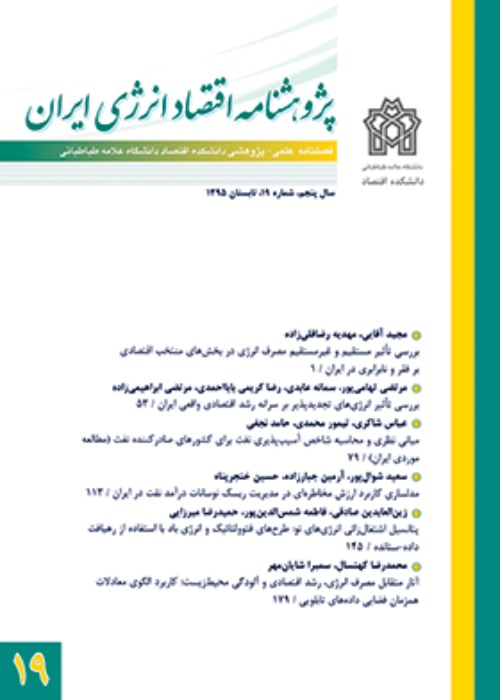Granger Causality Analysis between Consumption of Electricity, Natural Gas, Oil Products, and Value Added in Industrial Sub-Sectors of Iran: A Bootstrap Panel Approach
Half a century after the oil crisis in the 1970s, there is still not any agreement among economists when it comes to the type and existence of any relationship between energy consumption and economic growth. In this regard, many studies have been conducted, and many methods have also been adopted to find this relationship, most of which are now proved to be inappropriate and inefficient. Having utilized a new causality approach proposed by Konya (2006), this study investigated the relationship between three energy carriers, natural gas, electricity, oil products, as well as considering the value-added of sixteen main industrial sub-sectors in the period 1995-2017, via the bootstrap panel approach. Comparison to the traditional methods, one of Konya's merits is paying attention to the two categories of heterogeneity of coefficients and cross-sectional correlation, making the estimation of parameters more efficient. The results show that in five sub-sectors of the industry, including “rubber and plastic”, “other non-metallic mineral products”, “manufacture of machines and unclassified equipment”, “machinery generator, electric transmission, and unclassified electrical appliances”, “manufacture of motor vehicles, trailers and semi-trailers” there is a one-way causal relationship from value-added to natural gas consumption. On the other hand, in an industrial sub-sector of “manufacture of chemical products”, this relationship is two-way. Also, there is a lack of causal relationship between electricity consumption and value-added in sixteen industrial sub-sectors. Moreover, a one-way relationship from value-added to the consumption of oil products can be seen only in the industrial sub-sector of “manufacture of other transport equipment”. According to the results of this study, it seems that energy consumption is not dominant in the economic growth of the Iranian economy, and the government can adopt necessary policies regarding energy price liberalization and demand management without worrying about its dire consequences.
- حق عضویت دریافتی صرف حمایت از نشریات عضو و نگهداری، تکمیل و توسعه مگیران میشود.
- پرداخت حق اشتراک و دانلود مقالات اجازه بازنشر آن در سایر رسانههای چاپی و دیجیتال را به کاربر نمیدهد.


